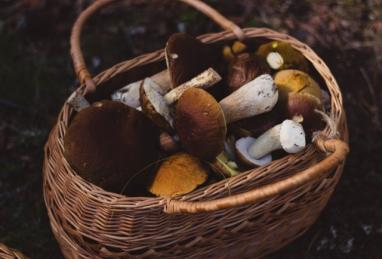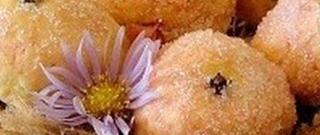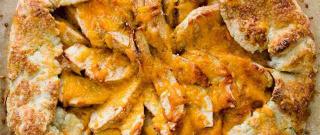When children become older and show their interest in eating food “for adults”, most parents are eager to let their kids try the most delicious meals and eat the food products they like the most. In most cases, mushrooms are included in the variety of such must-try products. However, considering their uncommon properties, the vast majority of parents tends to hesitate and often finds it difficult to decide whether or not it will be reasonable to treat their kids with meals containing mushrooms. They also wonder at what age it is better to give mushrooms to children. Let’s examine this problem in greater detail.
When dealing with the problem of whether all mushrooms are harmful to children, it is worth noting that only wild ones pose the highest risk. As for the most appropriate age for giving mushrooms to young children, most medical practitioners refer to different age categories that may vary from 2 to 10 years. However, certain researchers do not recommend conducting such cooking experiments at all, thinking that it is best to start feeding children with mushrooms only when they grow up. That’s because there were many instances when children consumed poisonous types of mushrooms, and the consequences of such experiments were often tragic. This is the key reason why doctors are often against giving this exotic product to children just to avoid possible complications. After all, there are lots of delicious and healthy recipes for kids without mushrooms, so why not try them all out instead?
On the other hand, many studies demonstrate that mushrooms are low in calories and fat and nourish the human body with high amounts of fiber. This may help to protect the kids’ digestive system and reduce the risk of possible digestive troubles to the minimum. What’s more, certain types of mushrooms also contain lots of potassium, which is good for the child’s muscle growth and heart.
Mushrooms also supply the human body with iron and vitamins C and D, which are essential nutrients for young children to stay in good health.
Still, there are always two sides of the medal. As such, despite the fact that mushrooms contain lots of proteins, minerals, carbohydrates, vitamins, and other nutrients, they may nevertheless be harmful to young children’s health. This especially refers to wild mushrooms that can be found in rural areas. In fact, they may contain highly dangerous components, and this may pose a risk to not just children but their parents as well. In addition, even those types of mushrooms that are not considered poisonous are rather difficult to digest, which is why their consumption may provoke serious gastrointestinal problems in young children.
All this leads to a conclusion that despite all the positive sides of eating mushrooms, little kids should not eat this product at all. After all, there is a splendid variety of much healthier and, in many cases, safer food products that all young children really enjoy eating.
After your kid reaches the age of 3, you can safely try out various healthy mushroom recipes. At this age, they will hardly cause any harm to your child. Suitable dishes may include mushroom soup or some other meal with a small number of mushrooms in it. The older your child is, the less dangerous it will be to treat him/her with mushrooms.
Are There Any Exceptions?
Perhaps the only exception here is mushrooms that you grow on their own. These types of mushrooms may include champignons and shiitake varieties. They should be the first to be added to the daily menu of your child as long as he/she is already 3 years old. Nonetheless, you should still remember that even in this case, there are many rules to be considered. Before cooking any kind of meal containing mushrooms, make sure that your child is absolutely healthy. If it is so, don’t hesitate to pick the most delicious recipe, which should contain thoroughly chopped and properly cooked mushrooms. This could be potatoes served with mushroom sauce or crème soup among others. You can also choose beef stew or some other tasty dish you find attractive. The number of mushrooms, however, should be reduced to a minimum to ensure that you keep track of the way your child feels after tasting mushrooms. This way, you'll be able to decide whether their digestive system is ready for this exotic product.






